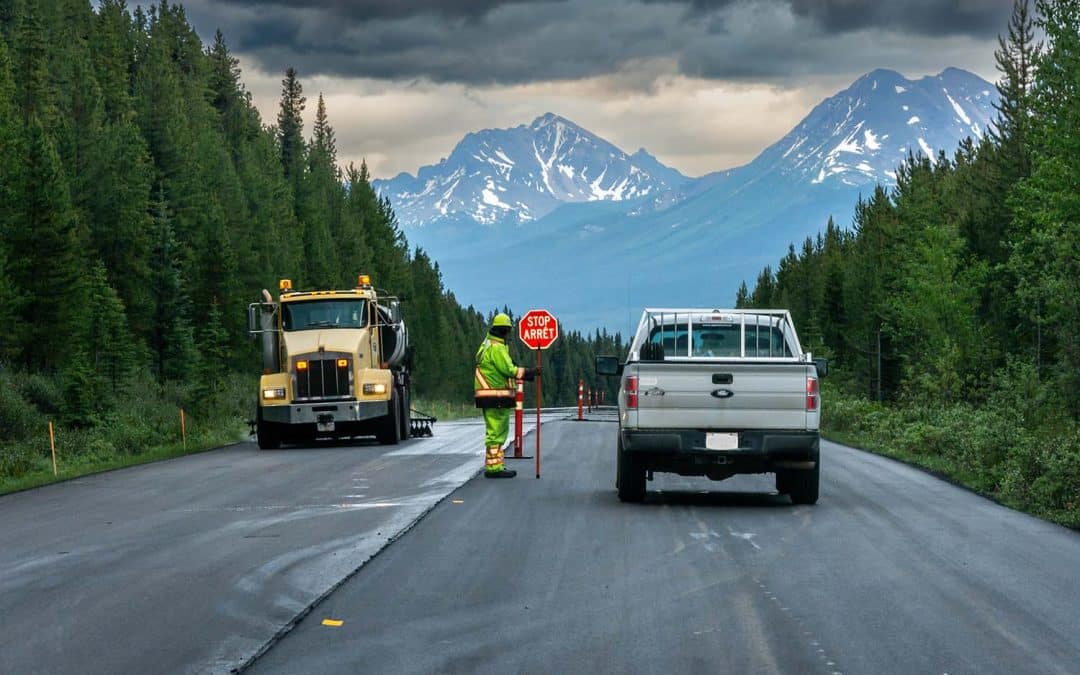Canada, with its vast network of roadways and highways, places a significant emphasis on safety. Ensuring the safety of drivers, pedestrians, and construction workers is a top priority. One very important aspect of road safety is the presence of Traffic Control Persons (TCPs), often referred to as “flag persons” in construction zones. These individuals play a vital role in guiding traffic and ensuring the smooth flow of vehicles through work zones. In this article, we will delve into the crucial role of traffic control persons in Canadian road safety, discuss safety tips for traffic control persons, and explore the importance of proper training in this field.
The Role of Traffic Control Persons (TCPs) in Canadian Road Safety
Traffic Control Persons, commonly known as TCPs, are essential figures in the Canadian road safety landscape. They are responsible for maintaining order and safety in construction zones, ensuring the well-being of both road users and construction workers.
Here are some of their key responsibilities, and why we value them so much:
- Traffic Management: TCPs are tasked with directing the flow of traffic around construction sites. They use hand signals, signs, and other communication tools to guide drivers safely through work zones.
- Safety: Their primary concern is safety. TCPs must be vigilant and alert at all times to prevent accidents and ensure the safety of both workers and motorists.
- Communication: Effective communication is vital. TCPs must convey clear and concise instructions to drivers and construction workers to avoid confusion and potential hazards.
- Equipment Operation: They may be required to operate traffic control devices, such as stop/slow signs, barricades, and traffic cones, to regulate traffic flow.
- Adaptability: TCPs must adapt to changing conditions, such as weather and traffic volume, to maintain a safe environment.
- Emergency Response: In the event of an emergency or accident, TCPs play a crucial role in facilitating the arrival of emergency services and maintaining traffic control.
Safety Tips for Traffic Control Persons
The role of a traffic control person is challenging and demands a high level of responsibility. To ensure their safety and the safety of others, TCPs should follow these safety tips:
- Wear Proper PPE: Always wear the appropriate personal protective equipment (PPE), including high-visibility clothing, hard hats, and safety boots.
- Stay Alert: Maintain focus and stay alert to the traffic and construction activities around you.
- Positioning: Position yourself in a way that provides a clear view of traffic while remaining safe from oncoming vehicles.
- Use Hand Signals: Ensure that hand signals are clear and standardized, as they are a primary means of communication with drivers.
- Stay Visible: Make sure your reflective vest and safety gear are visible to approaching drivers, especially in low-light conditions.
- Stay in Designated Zones: Never stand in the path of oncoming traffic. Always remain in designated safety zones.
- Be Mindful of Weather: Be prepared for changing weather conditions, and adjust your PPE accordingly.
- Know Your Equipment: Familiarize yourself with the operation of traffic control devices and use them correctly.
- Stay Calm: Keep a cool head, especially in high-stress situations. Maintain a professional demeanor when dealing with frustrated or impatient drivers.
- Training: Finally, and perhaps most importantly, ensure that you have received proper training and certification as a traffic control person.
The Importance of Training and Certification
Proper training and certification are critical for traffic control persons. Canada recognizes the importance of this and has established standards for TCP training. Training programs cover various aspects, including traffic management techniques, communication skills, safety procedures, and equipment operation.
By enrolling in a certified training program, TCPs gain the knowledge and skills needed to excel in their role while minimizing risks. These programs also emphasize the importance of staying up-to-date with changing regulations and safety practices, ensuring that TCPs remain effective and safe on the job.
In Canada, the demand for certified traffic control persons is on the rise. This demand is driven by the country’s ongoing infrastructure projects and a commitment to maintaining high safety standards. As a result, individuals seeking employment in this field should consider obtaining proper certification to enhance their career prospects.
Valley Work Safe: Your Partner in Traffic Control Person Certification
For those aspiring to become Certified Traffic Control Persons in Canada, Valley WorkSafe offers comprehensive online certification courses and in-person workplace safety training. Serving the Pembroke, Renfrew, Petawawa, Arnprior, and surrounding areas, Valley Work Safe is a trusted name in safety training and certification.
Our courses are designed to equip individuals with the knowledge and skills needed to excel in the role of traffic control persons. We prioritize safety, professionalism, and adherence to Canadian regulations. With Valley Work Safe, you can embark on a fulfilling and essential career in construction, the trades, or road safety.
In conclusion, traffic control persons play a pivotal role in ensuring road safety across Canada. Their responsibilities encompass traffic management, communication, and maintaining a safe work environment. To excel in this role, proper training and certification are essential. Valley Work Safe, with its online certification courses and workplace safety training, stands as a reliable partner for those looking to pursue a career as a certified traffic control person in Pembroke, Renfrew, Petawawa, Arnprior, and the surrounding areas. Join us in contributing to safer Canadian roadways and construction sites.
Realted Video:

